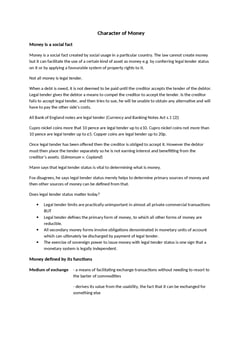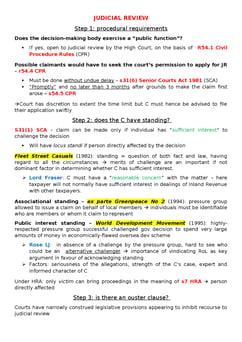A-G v De Keysers Royal Hotel [1920] AC 508
Judgement for the case A-G v De Keysers Royal Hotel
Table Of Contents
KEY POINTS
The authority held by the Crown and Parliament did not permit the taking back of property from a citizen, even in matters related to the defense of the realm, unless the citizen received suitable and fair compensation.
“If the whole ground of something which could be done by the prerogative is covered by the statute, it is the statute that rules.” (Lord Dunedin)
FACTS
De Keyser’s Royal Hotel was a well-known and established hotel located in London. The hotel was owned by De Keyser’s Royal Hotel Ltd. During WWI, the government requisitioned the hotel for military use. The purpose of the requisition was to accommodate military personnel and conduct military activities.
After the war ended, De Keyser’s Royal Hotel Ltd sought compensation from the government for the use of its property during the wartime requisition. The central issue in the case was whether the government had the legal authority to requisition the property and, if so, what compensation was due to the hotel owner.
JUDGEMENT
Appeal dismissed. The claimants were entitled to compensation in the manner provided by the Defence Act 1842.
COMMENTARY
This case is significant in legal history because it established the principle that the government has the power to requisition property during wartime for military purposes, subject to the requirement of fair compensation to the property owner. It clarified the scope of government powers during times of national emergency and influenced subsequent legislation related to the use of private property during times of war.
ORIGINAL ANALYSIS
The army took control of a hotel during WWI under a discretionary prerogative power and failed to pay compensation to the owners, claiming the prerogative power availed them of the need to.
HL ruled that actually they do have to pay compensation to a person whose property they take for whatever purposes.
Lord Parmoor
Says that prerogative rights have had to be curtailed in order for constitutional liberty to exist.
The prerogative to indefinitely take someone’s property without compensation no longer exists and has been reduced by statute. Statute overrules prerogative!
RELATED CASES
For Further Study on A-G v De Keysers Royal Hotel
Need instant answers? Our AI exam tutor is here to help.
Ask questions 🙋 Get answers 📔 It's simple 👁️👄👁️
Our AI is educated by the highest scoring students across all subjects and schools. Join hundreds of your peers today.
Get StartedSimilar Cases
Related Product Samples
These product samples contain the same concepts we cover in this case.
| Personal Property Law | Types Of Property Rights Notes (17 pages) |


 Since 2010, Oxbridge Notes has been a trusted education marketplace, supplying high-quality materials from top achievers at universities like Oxford, Cambridge, LSE, Harvard, and Yale.
Since 2010, Oxbridge Notes has been a trusted education marketplace, supplying high-quality materials from top achievers at universities like Oxford, Cambridge, LSE, Harvard, and Yale.